*NURSING > QUESTIONS & ANSWERS > Certified Postanesthesia Nurse CPAN Exams Forms 1-4, Answered_2022. (All)
Certified Postanesthesia Nurse CPAN Exams Forms 1-4, Answered_2022.
Document Content and Description Below
A 60-year-old female is admitted to the PACU following a diagnostic dilation and curettage with general anesthesia. Chart review reveals normal preoperative EKG-hemoglobin-hematocrit- and electrolyt... e values. Past medical history is remarkable for rheumatic fever during childhood. Thirty minutes later the patient develops the following EKG pattern --- A-fib--- The perianesthesia nurse interprets the rhythm strip as indicating A. Occasional premature atrial contractions B. First-degree heart block C. Atrial flutter D. Atrial fibrillation - A. Occasional premature atrial contractions B. First-degree heart block C. Atrial flutter D. Atrial fibrillation A 60-year-old female is admitted to the PACU following a diagnostic dilation and curettage with general anesthesia. Chart review reveals normal preoperative EKG-hemoglobin-hematocrit- and electrolyte values. Past medical history is remarkable for rheumatic fever during childhood. Thirty minutes later the patient develops the following EKG pattern --- A-fib--- If the defibrillator is not set on the synchronized mode during a cardioversion- which life threatening arrhythmia could occur? A. Ventricular fibrillations B. Wenckebach's phenomenon C. Premature ventricular contractions D. Ventricular tachycardia - Ventricular fibrillations Wenckebach's phenomenon Premature ventricular contractions Ventricular tachycardia A 60-year-old female is admitted to the PACU following a diagnostic dilation and curettage with general anesthesia. Chart review reveals normal preoperative EKG-hemoglobin-hematocrit- andelectrolyte values. Past medical history is remarkable for rheumatic fever during childhood. Thirty minutes later the patient develops the following EKG pattern --- A-fib--- The patient is transferred to a surgical nursing unit following successful cardioversion because the ICU and monitored units are full. The PACU nurse should emphasize assessment for A. Atrioventricular dissociation B. Thermal incident C. Sinus bradycardia D. Emboli - A. Atrioventricular dissociation B. Thermal incident C. Sinus bradycardia D. Emboli The perianesthesia nurse has given the patient instructions regarding taking medications on the day of surgery. Which statement indicates that the patient understands the pre-op teaching A. "I will only have small amounts of water with the medications I take on the morning of surgery" B. "Since I have atrial fibrillation, I need to take my warfarin on the morning of surgery" C. "I will take my vitamins and herbal supplements on the morning of surgery" D. "Since I am diabetic, I need to take my insulin and eat breakfast every day" - A. "I will only have small amounts of water with the medications I take on the morning of surgery" B. "Since I have atrial fibrillation, I need to take my warfarin on the morning of surgery" C. "I will take my vitamins and herbal supplements on the morning of surgery" D. "Since I am diabetic, I need to take my insulin and eat breakfast every day" A patient in Phase II is complaining of nausea and refusing any medication. Which essential oil may be inhaled to treat post-operative nausea and vomiting? A. Rose B. Sandalwood C. Lemongrass D. Peppermint - A. Rose B. Sandalwood C. Lemongrass D. PeppermintWhich one of the following positions would be indicated for a left lower lobectomy? A. Flat bed rest B. Turned to operative side only C. Turned to nonoperative side only D. Semi-Fowler's position with turning to either side - A. Flat bed rest B. Turned to operative side only C. Turned to nonoperative side only D. Semi-Fowler's position with turning to either side A patient with an implantable cardioverter defibrillator (ICD) arrives in the PACU with a magnet over the generator. The perianesthesia nurse should: A. Remove the magnet so the ICD is activated B. Remove the magnet so the ICD is deactivated C. Educate the patient on the care of the magnet D. Adjust the placement of the magnet - A. Remove the magnet so the ICD is activated B. Remove the magnet so the ICD is deactivated C. Educate the patient on the care of the magnet D. Adjust the placement of the magnet A patient with a subarachnoid hemorrhage is lethargic but arousable. The patient is taken to surgery for an aneurysm clipping. ABG shows pH= 7.50 pCO2= 45 mm HG and HCO3-= 30 mEq/L. The perianesthesia nurse interprets this as: A. Respiratory alkalosis B. Respiratory acidosis C. Metabolic acidosis D. Metabolic alkalosis [Show More]
Last updated: 1 year ago
Preview 1 out of 48 pages

Reviews( 0 )
Document information
Connected school, study & course
About the document
Uploaded On
May 30, 2022
Number of pages
48
Written in
Additional information
This document has been written for:
Uploaded
May 30, 2022
Downloads
0
Views
198

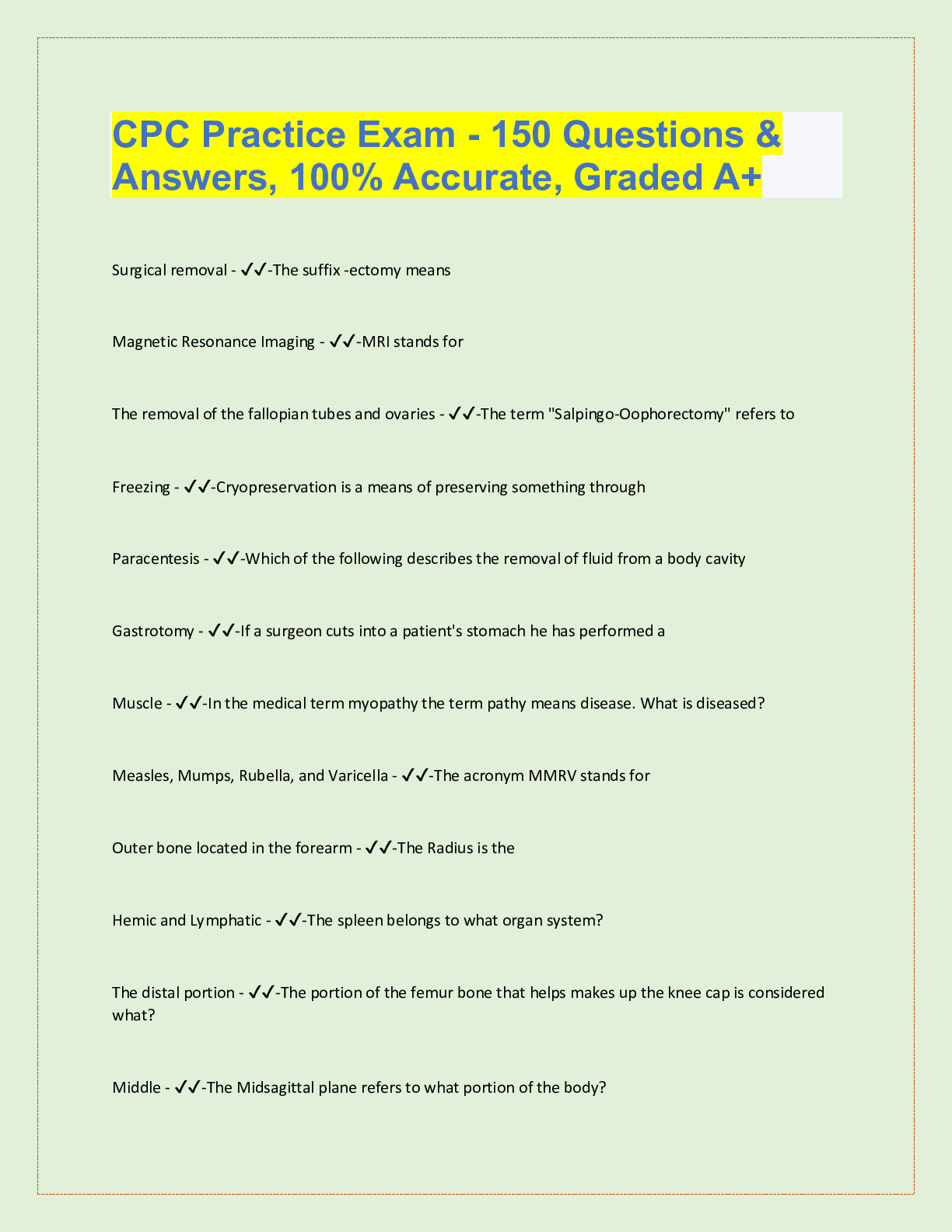

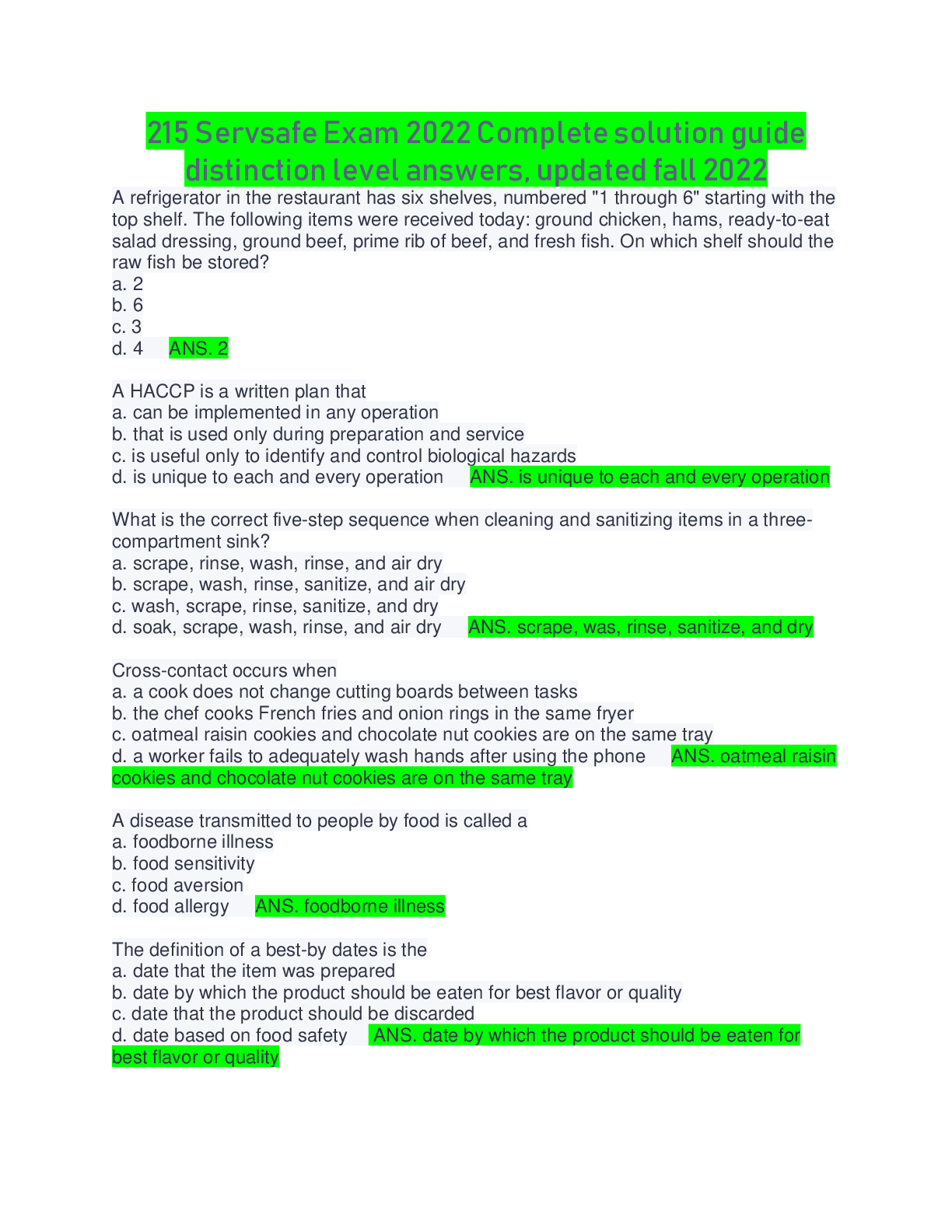

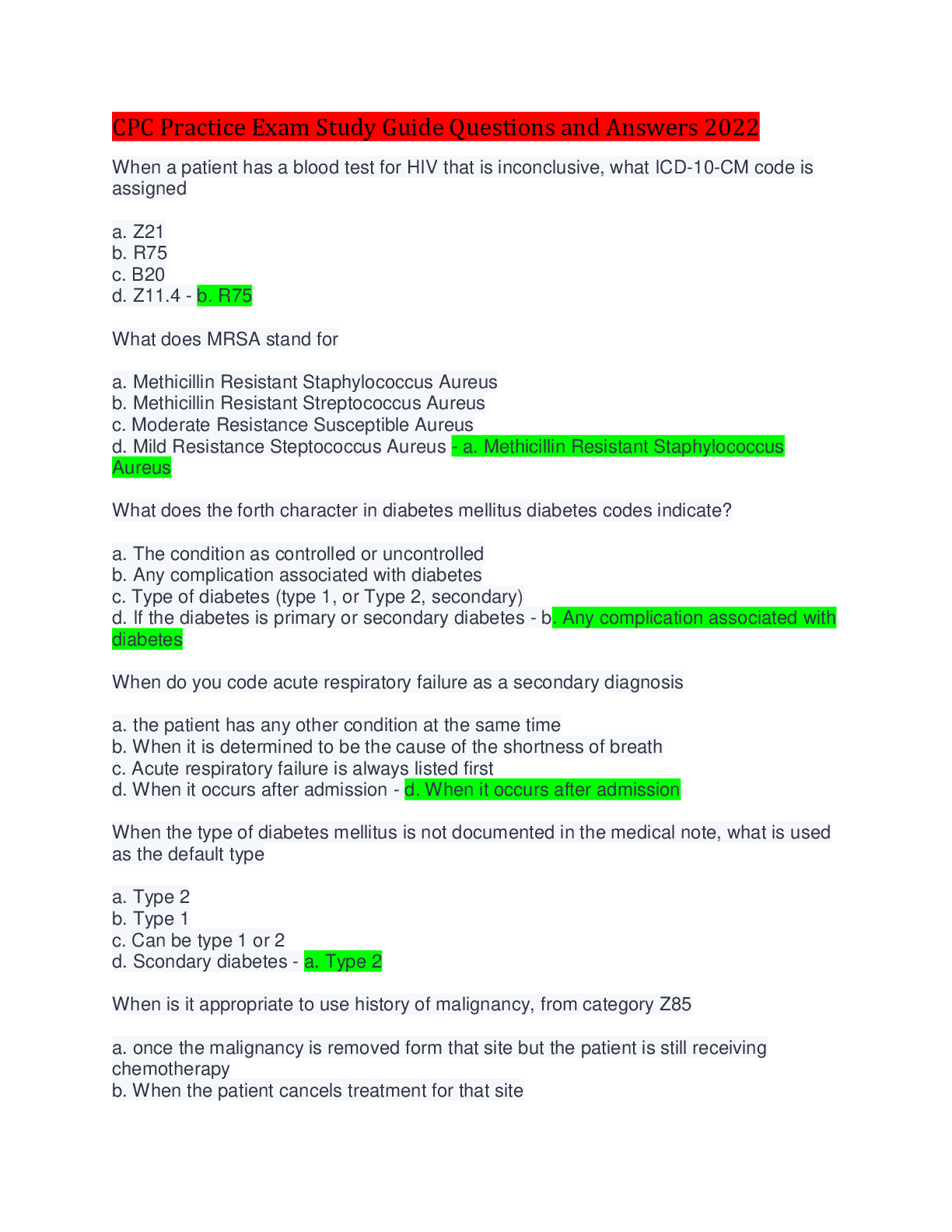
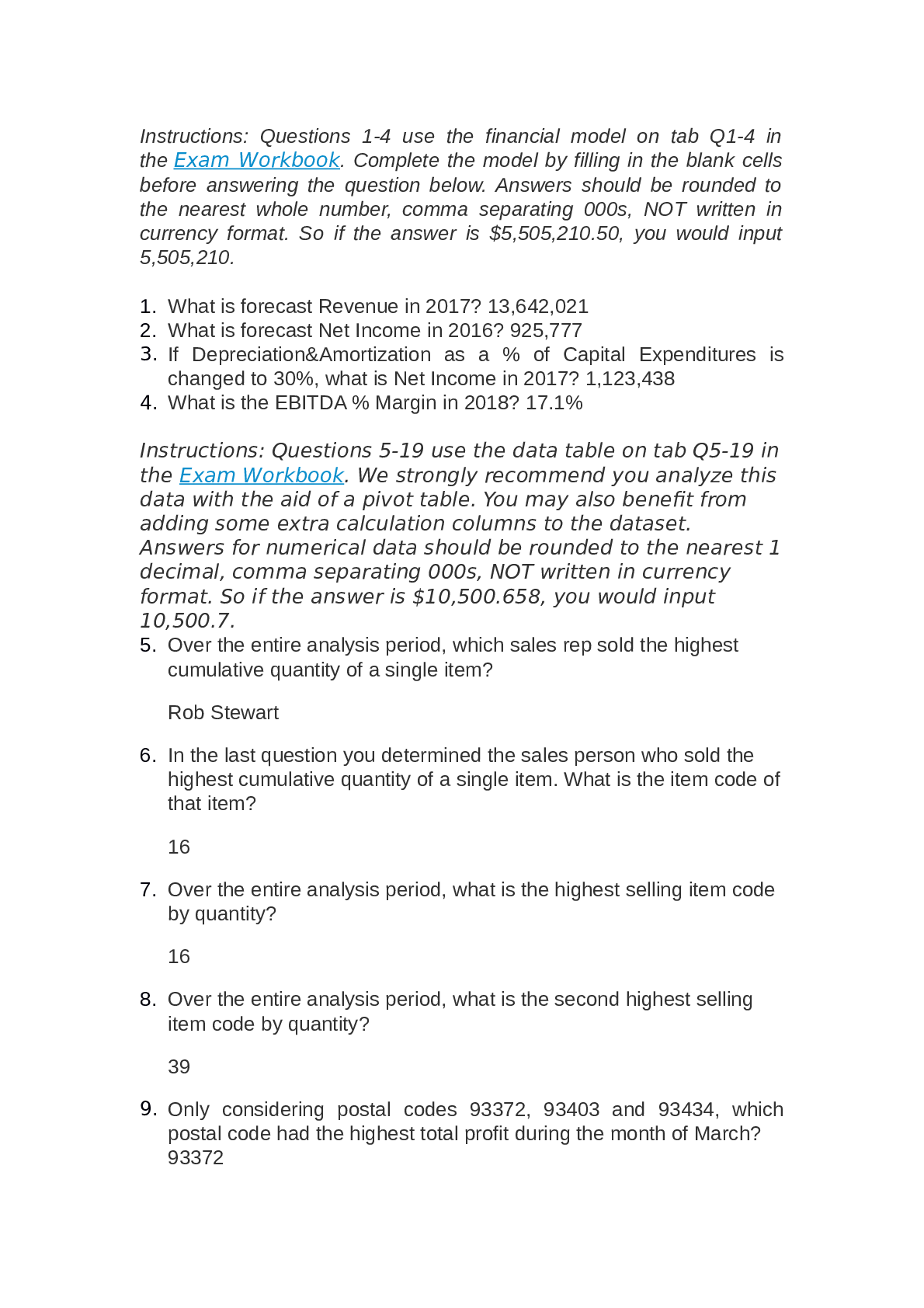
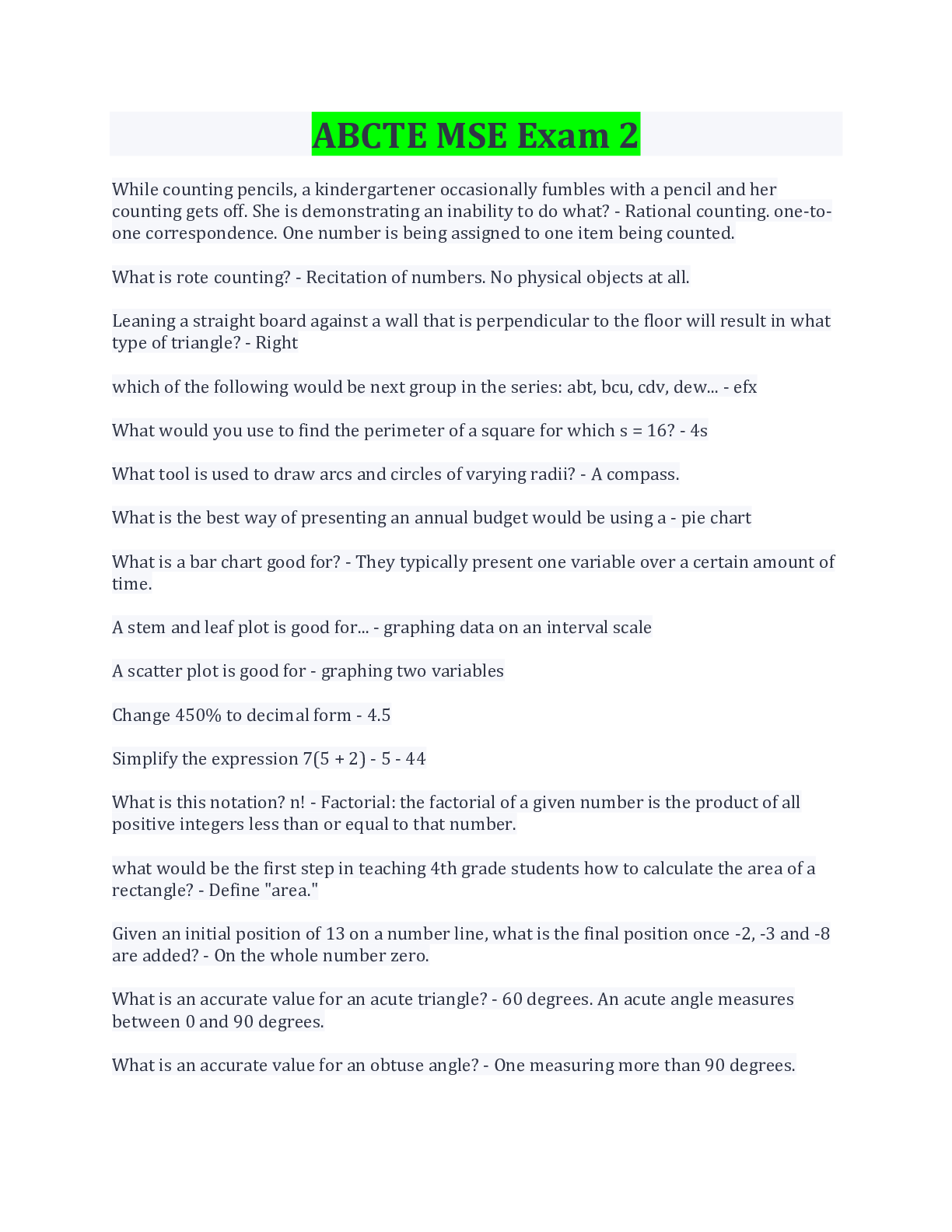
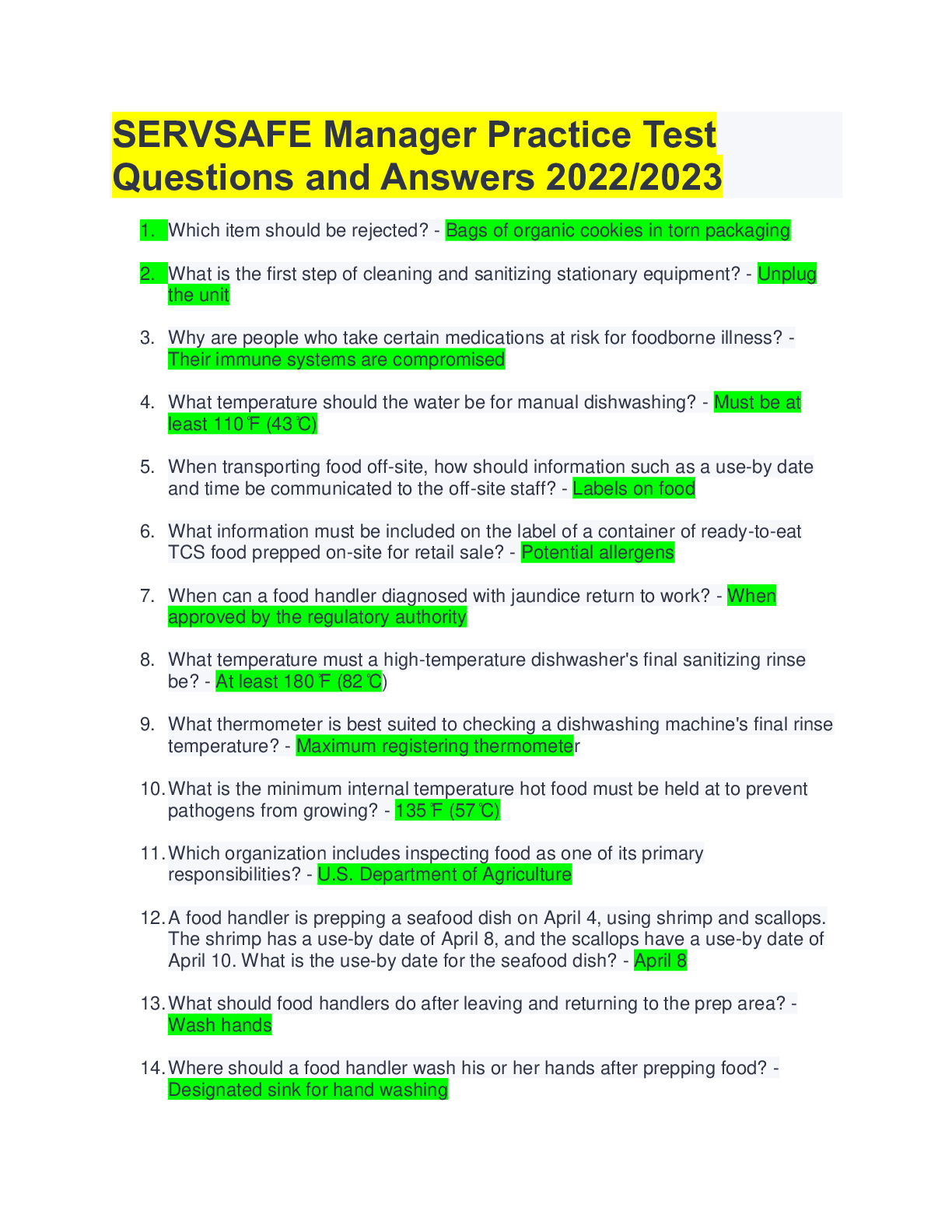

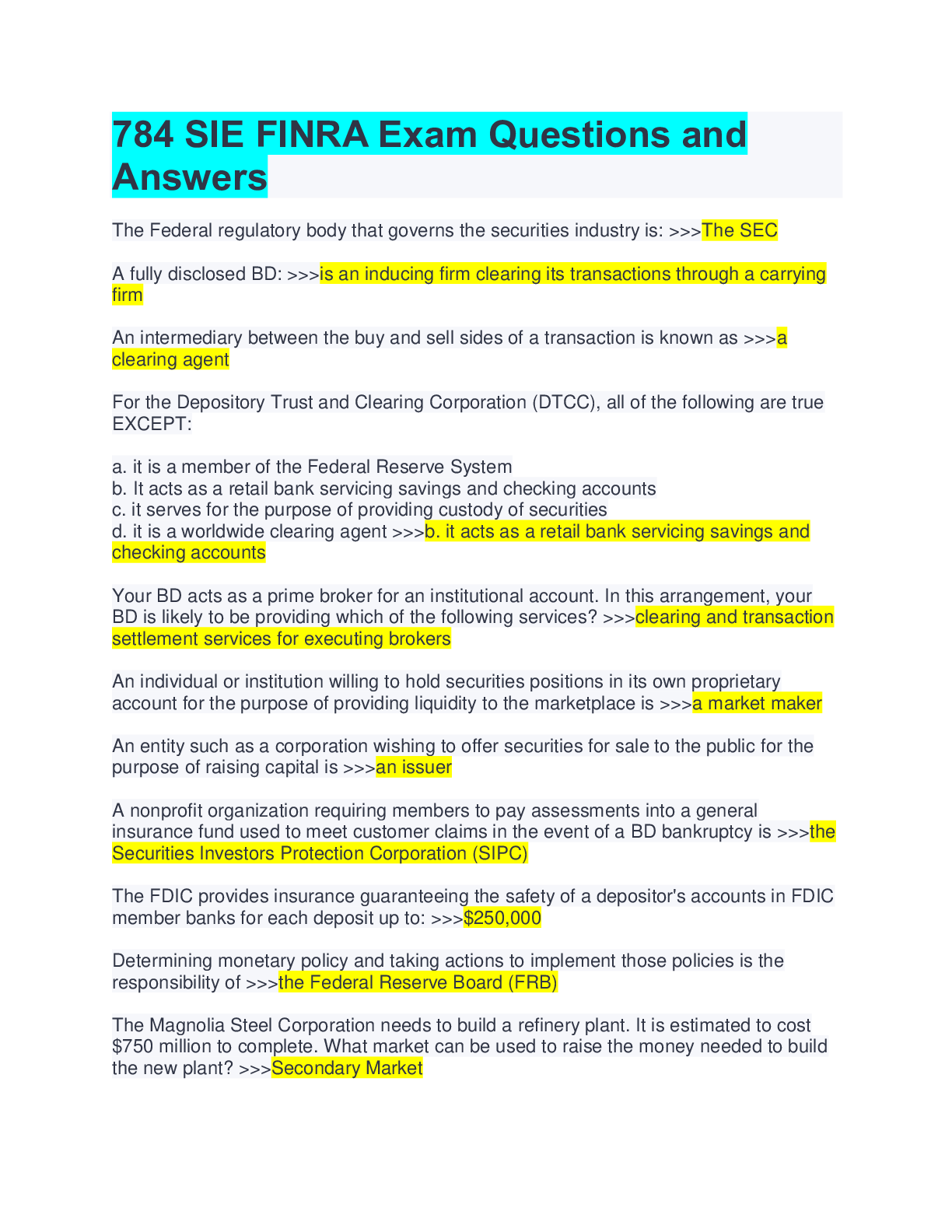
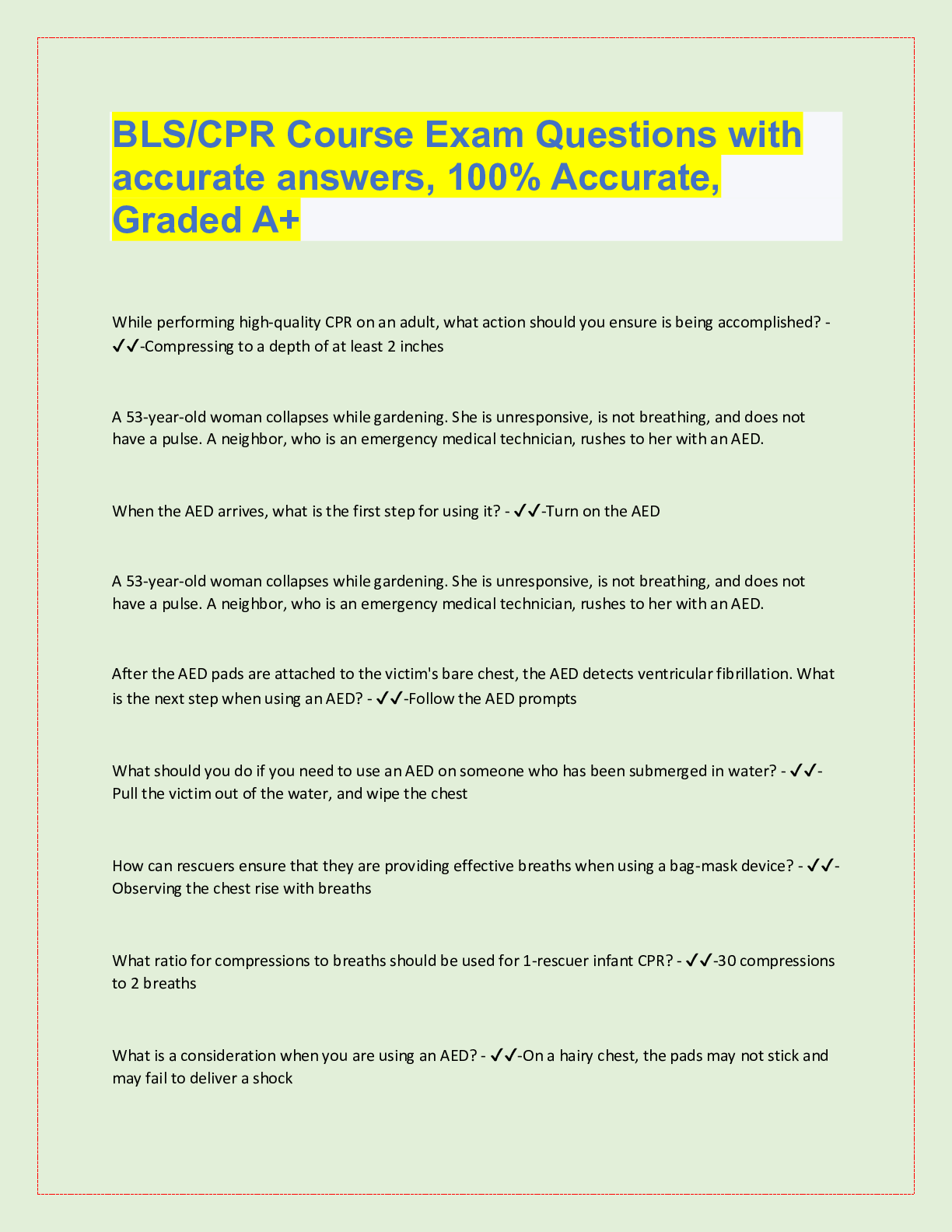
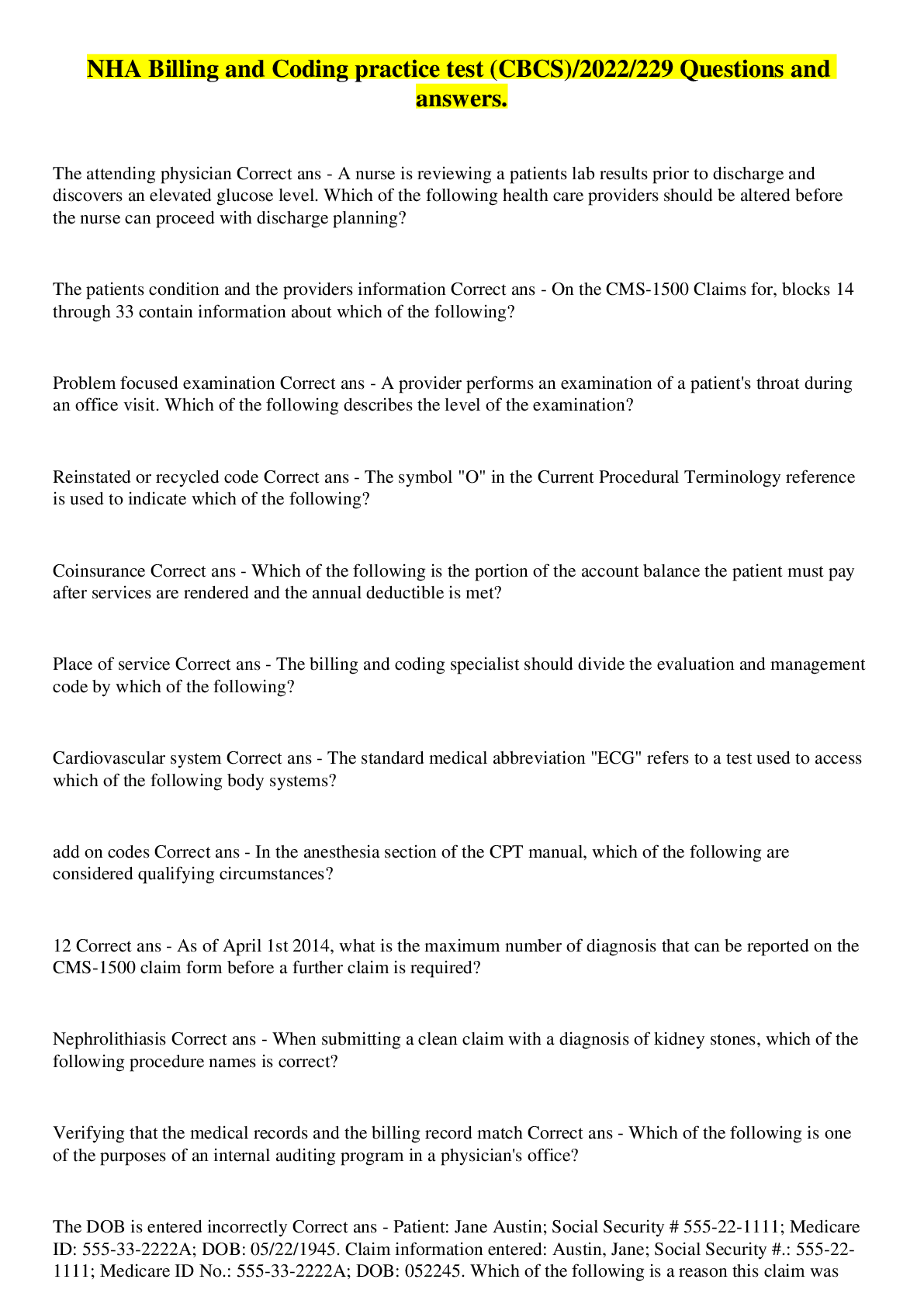
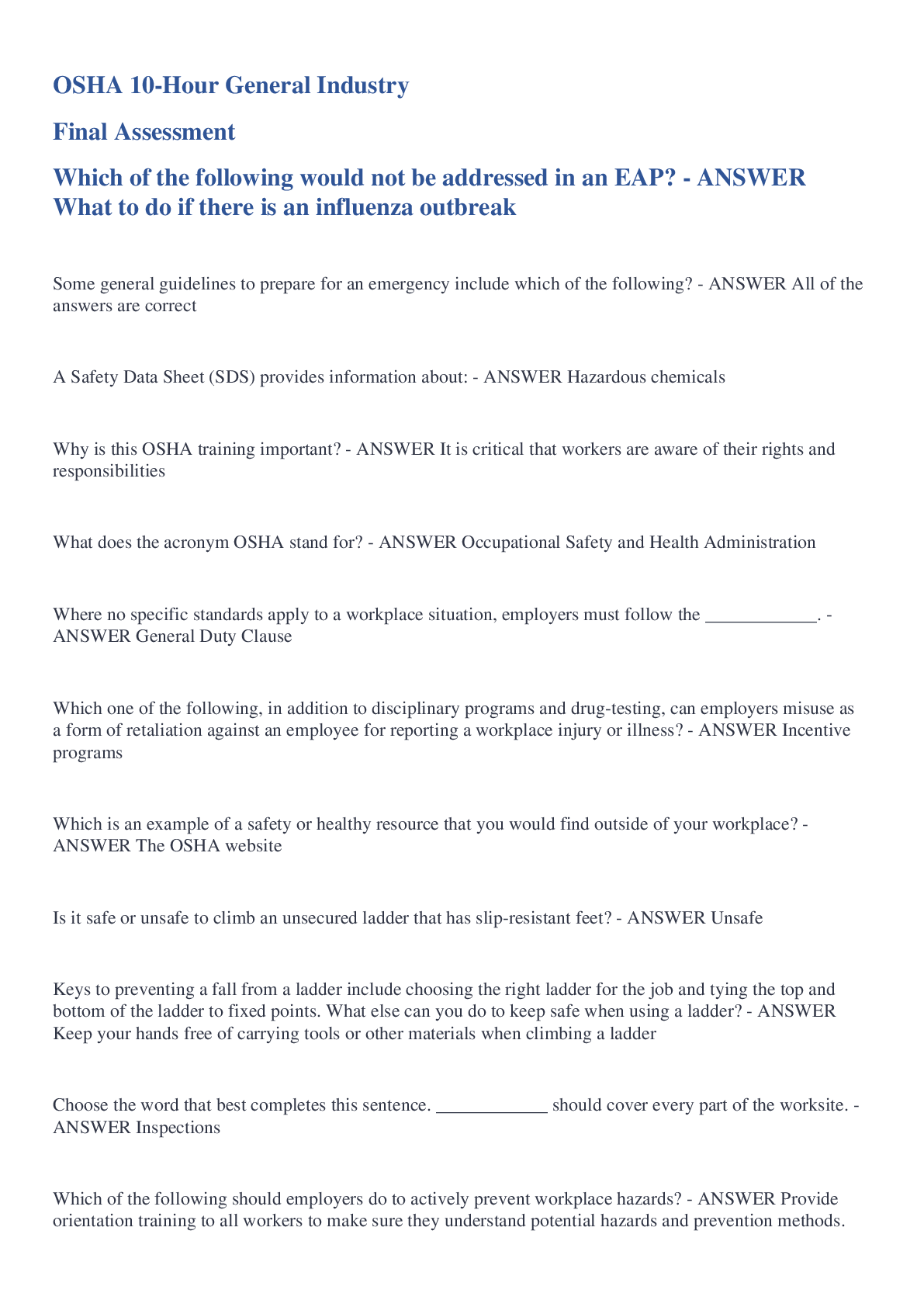

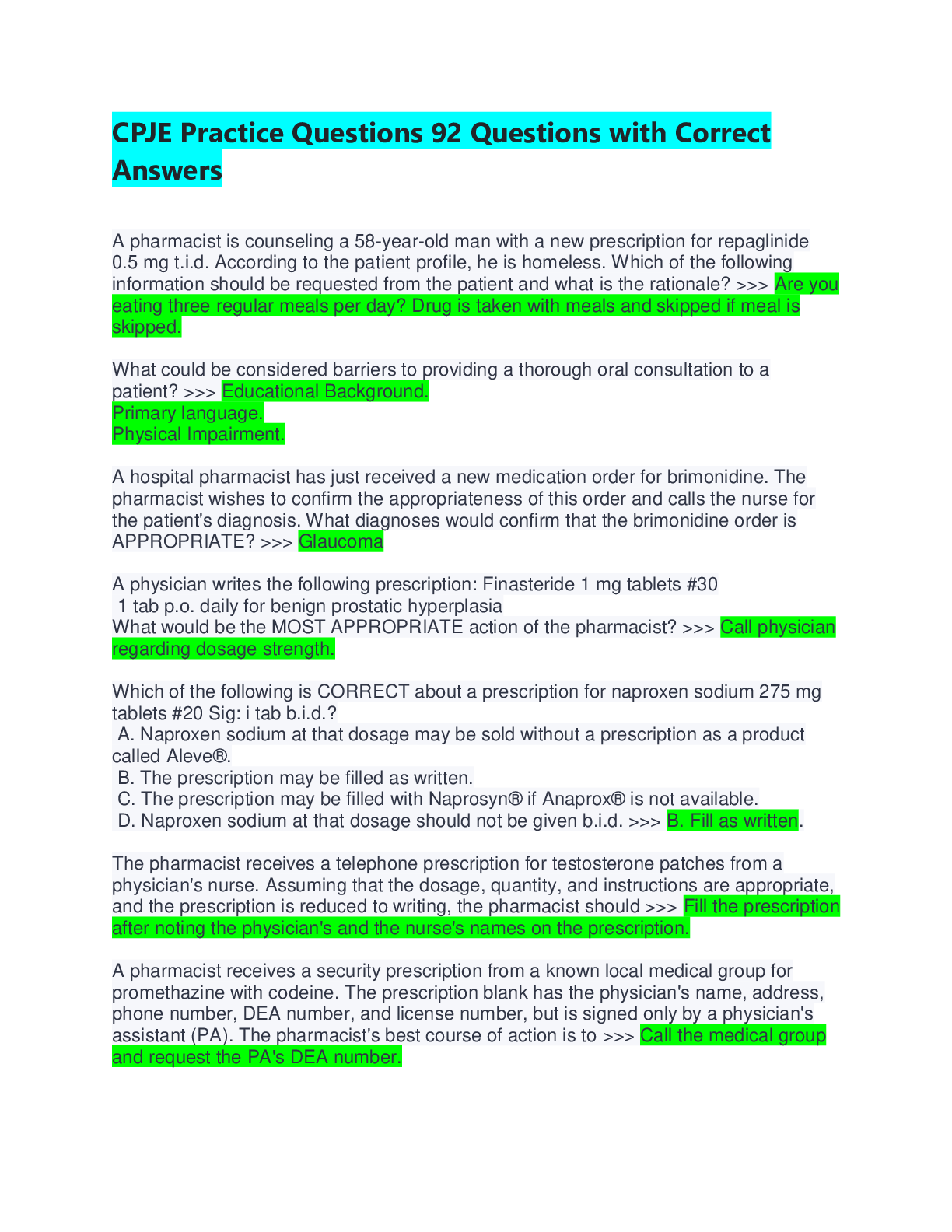

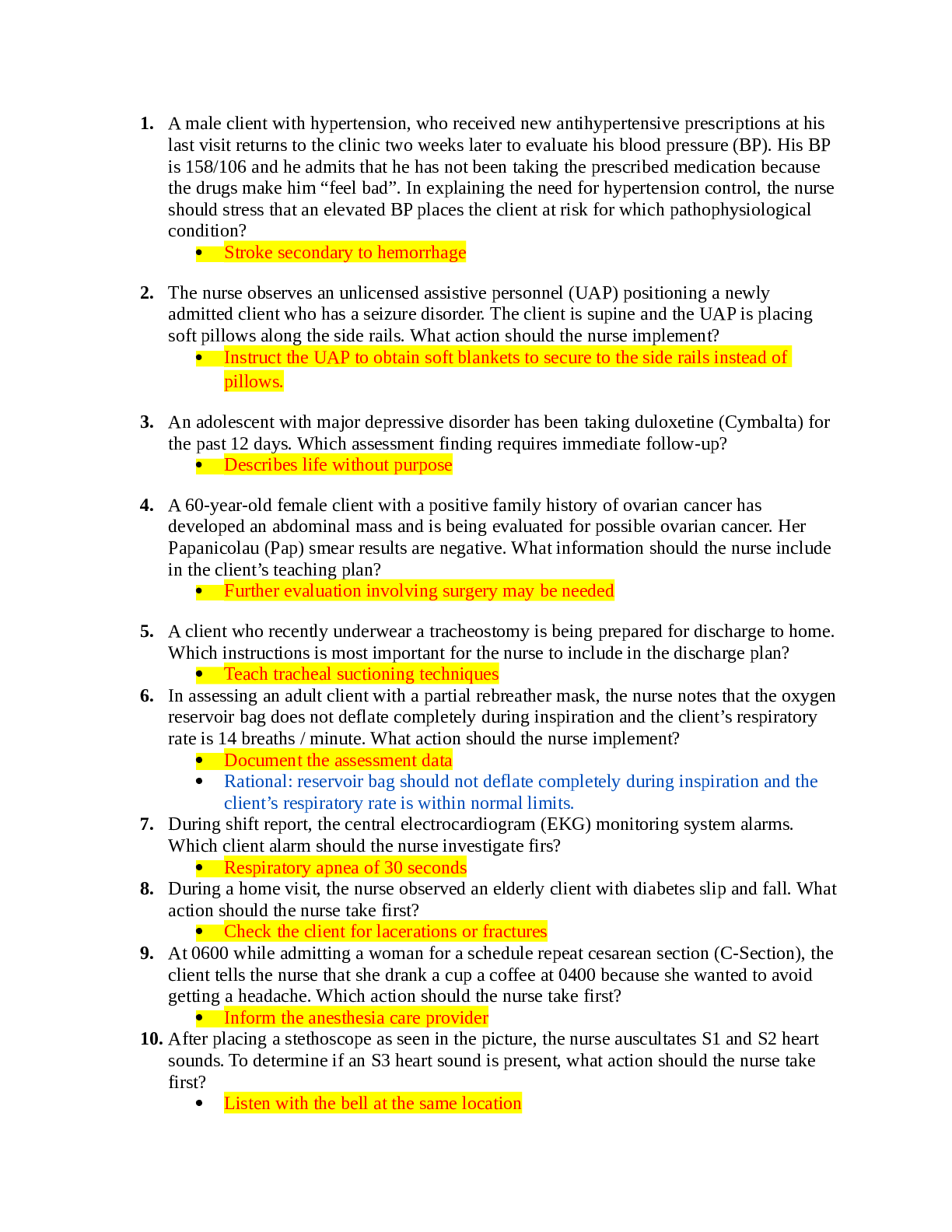

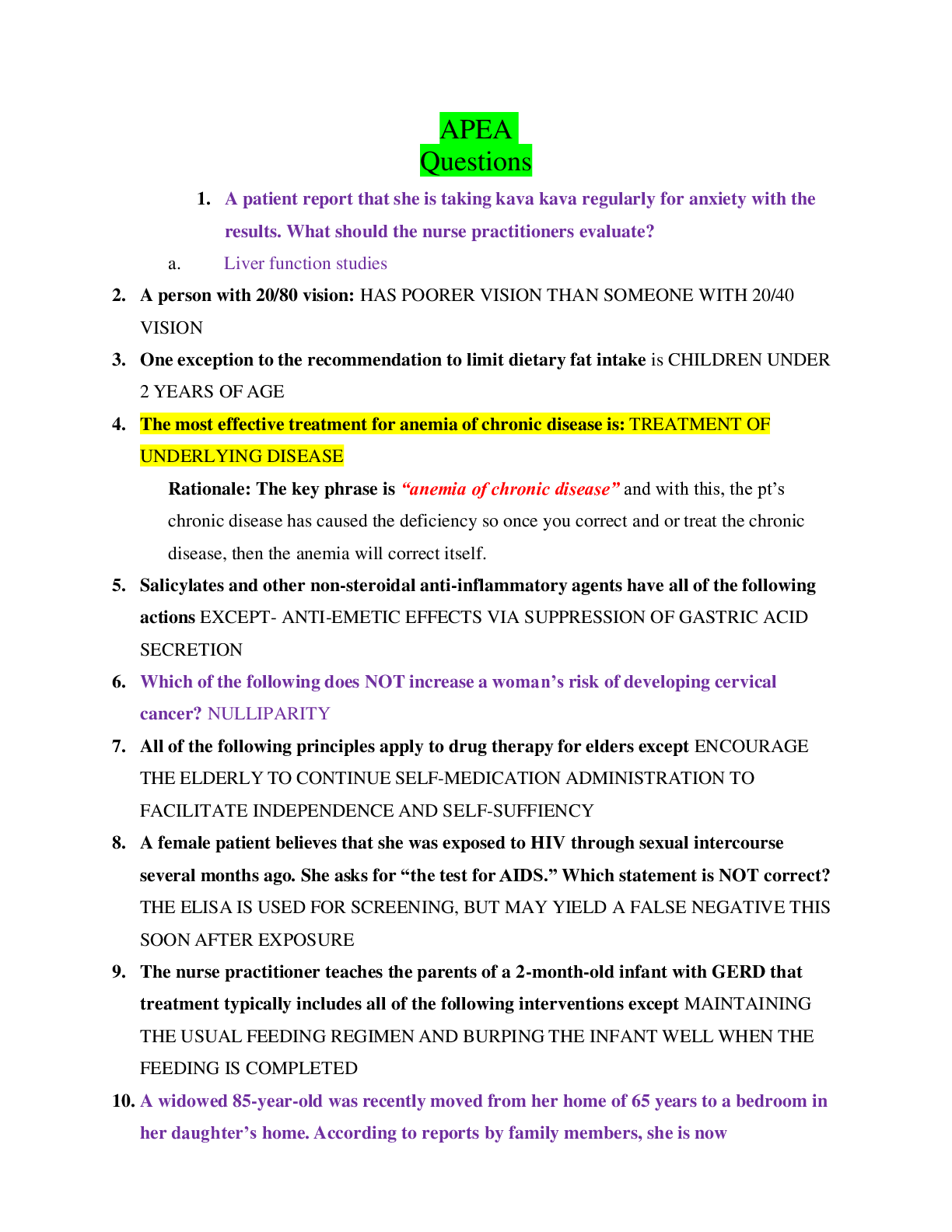
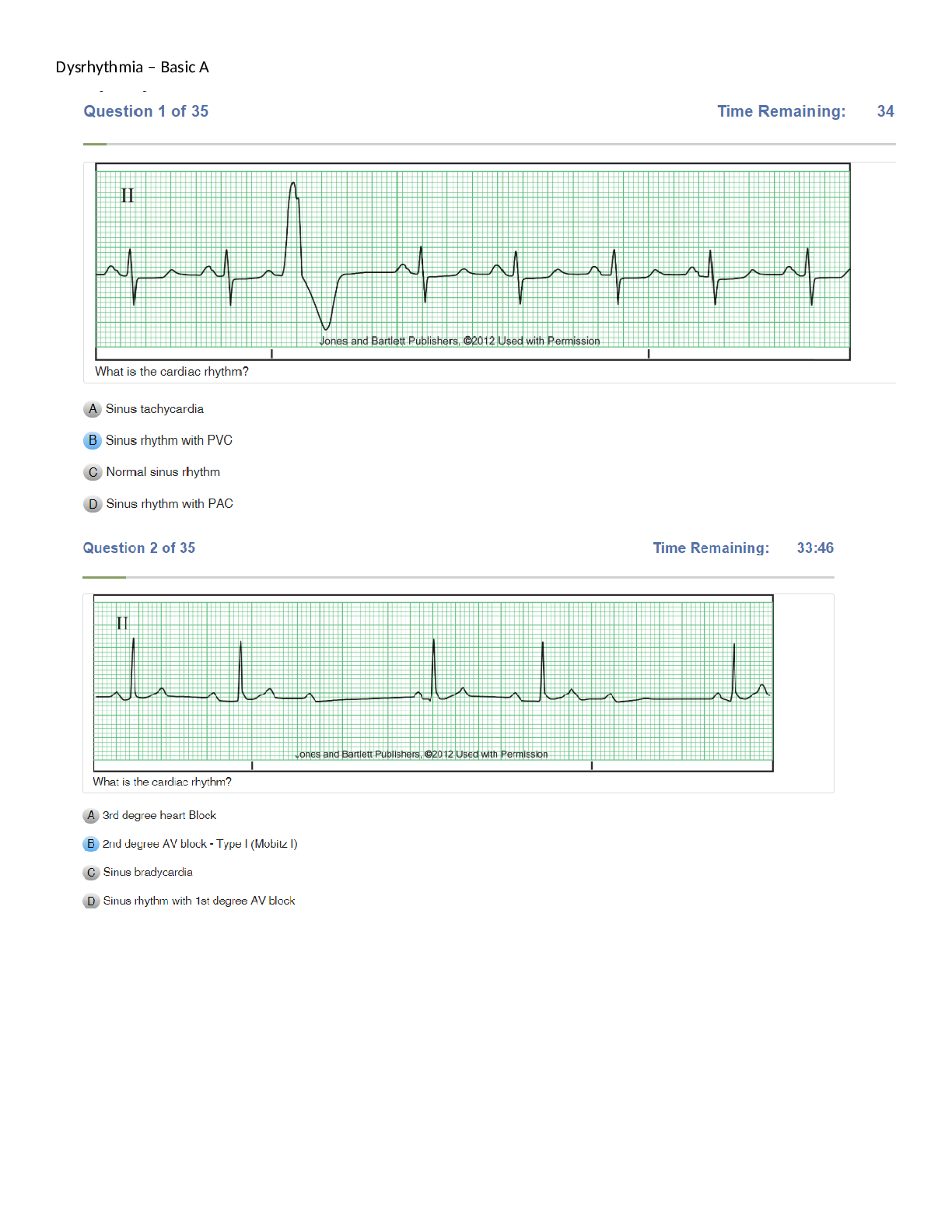

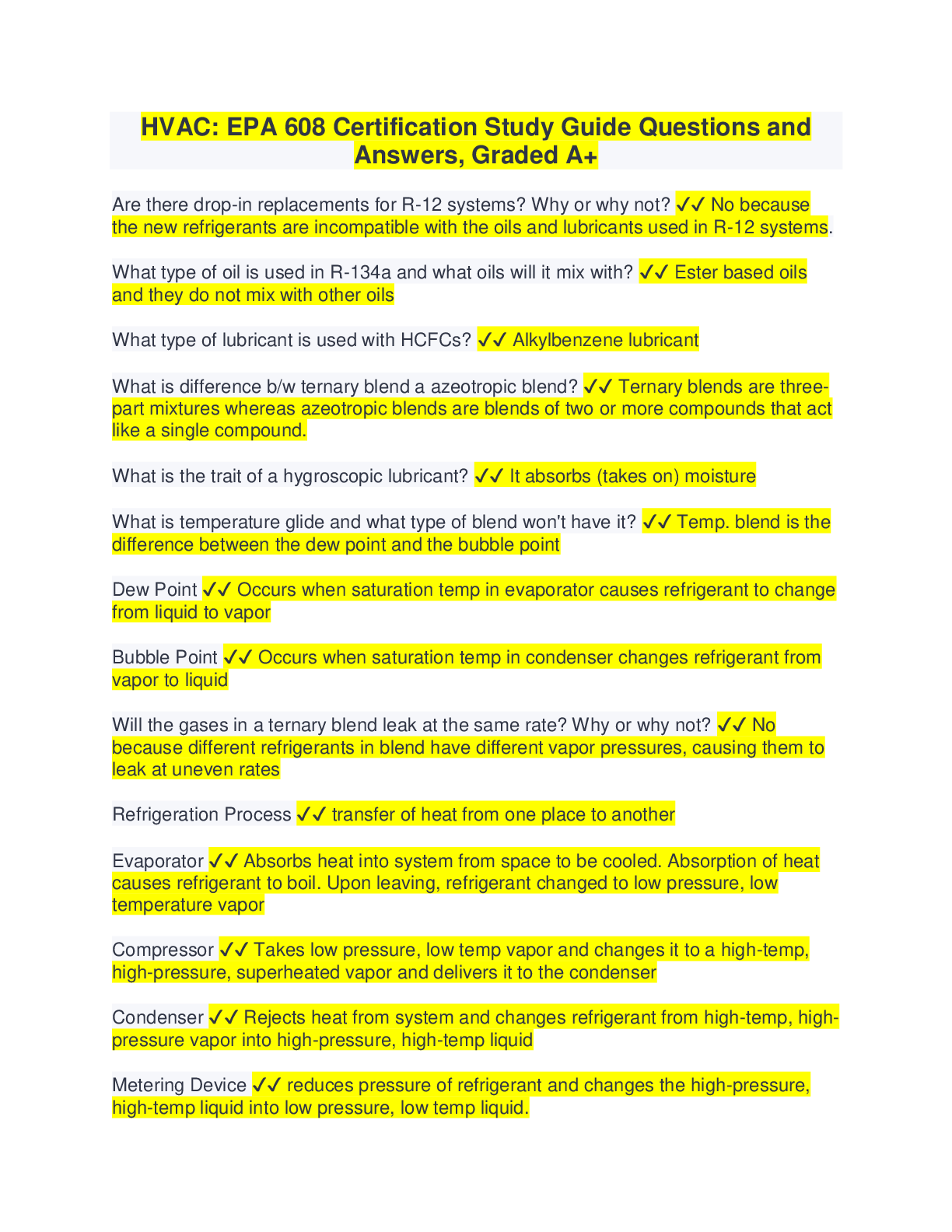

.png)
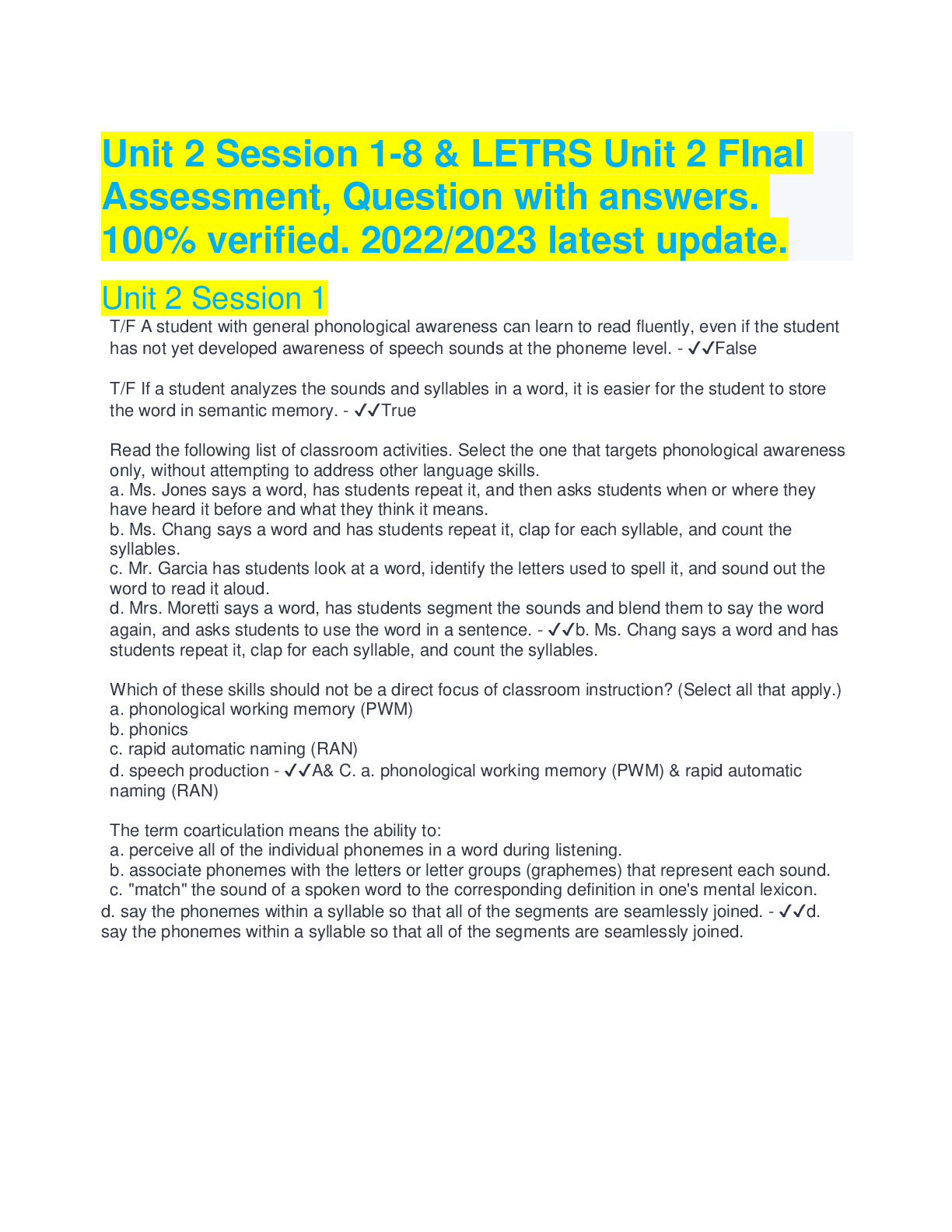
.png)
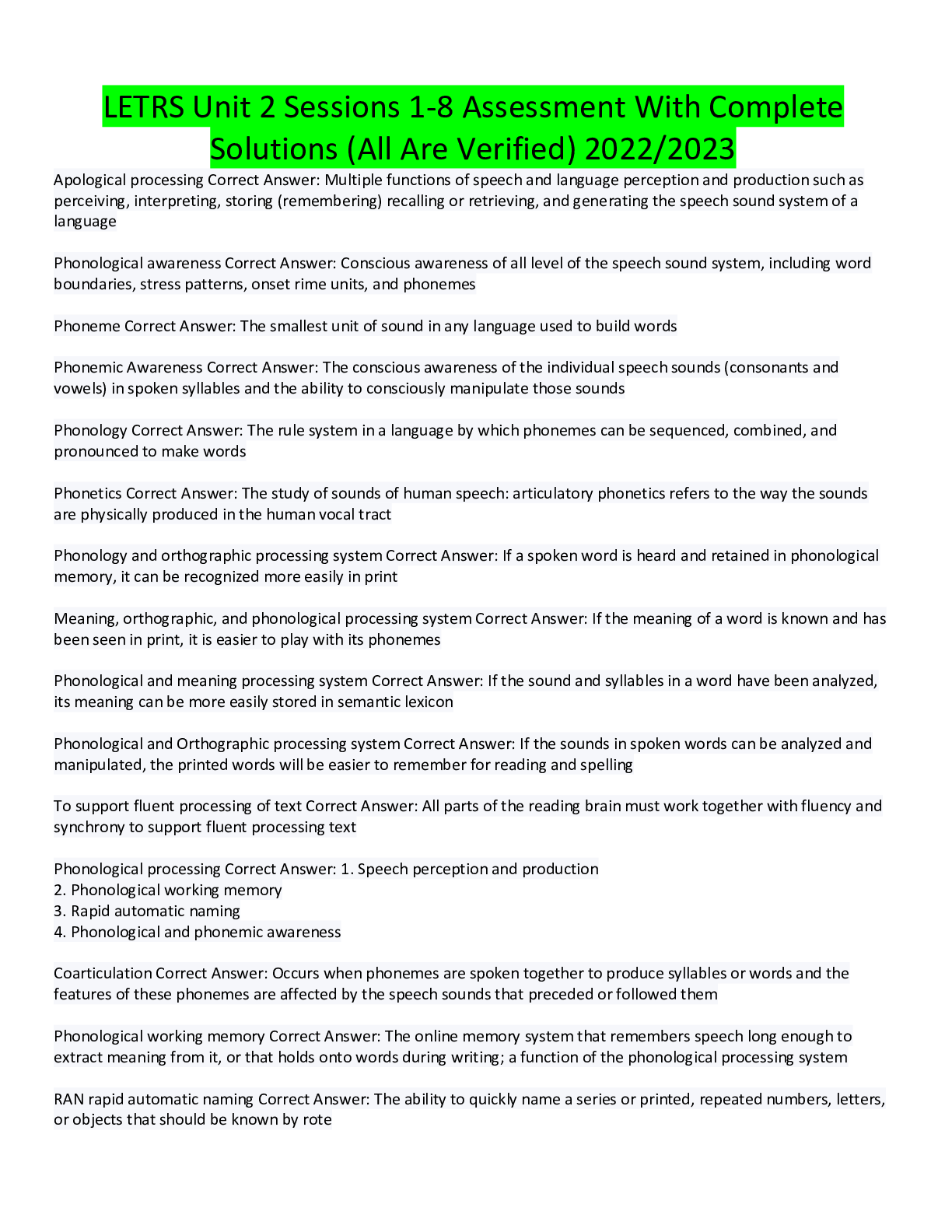
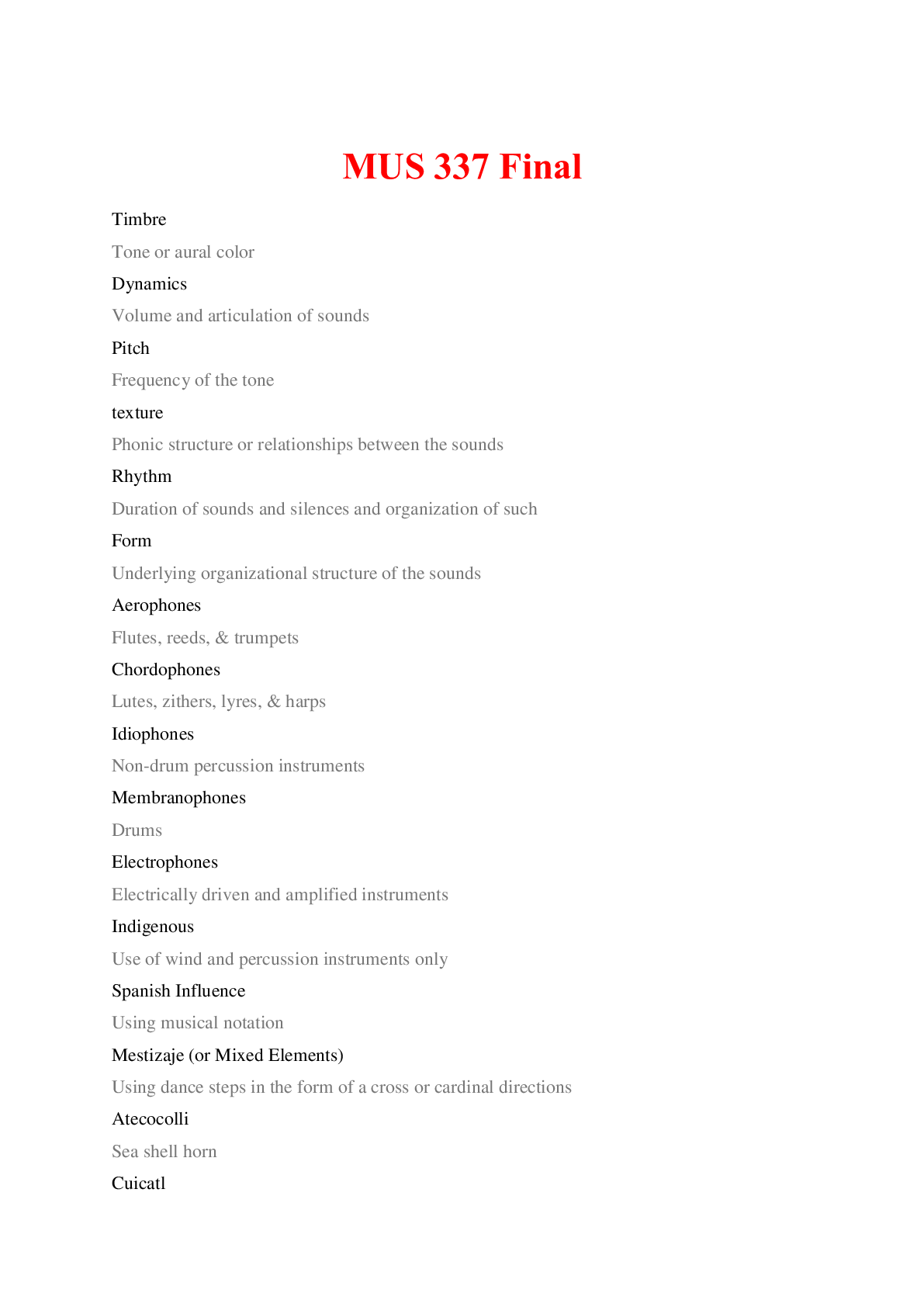
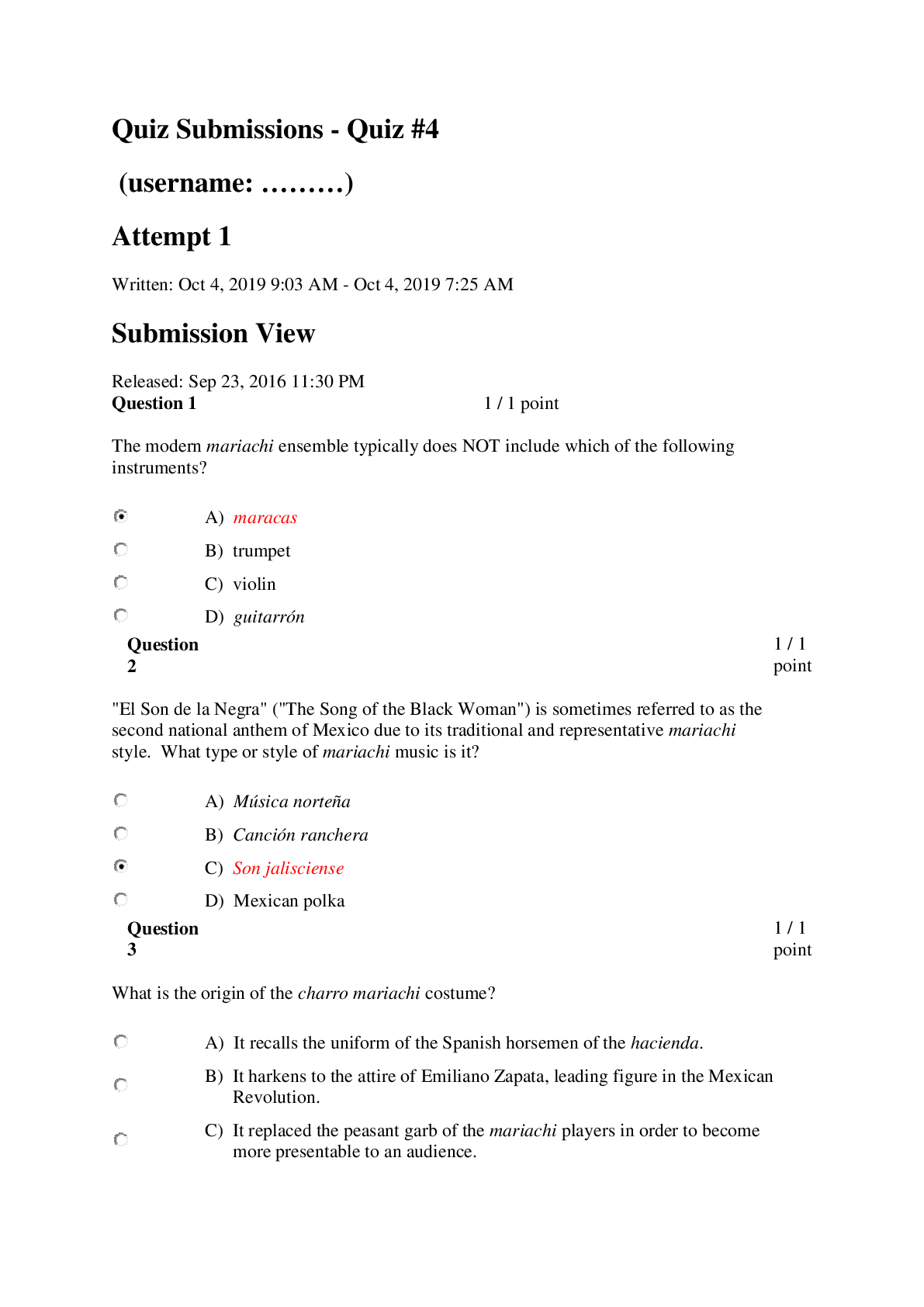
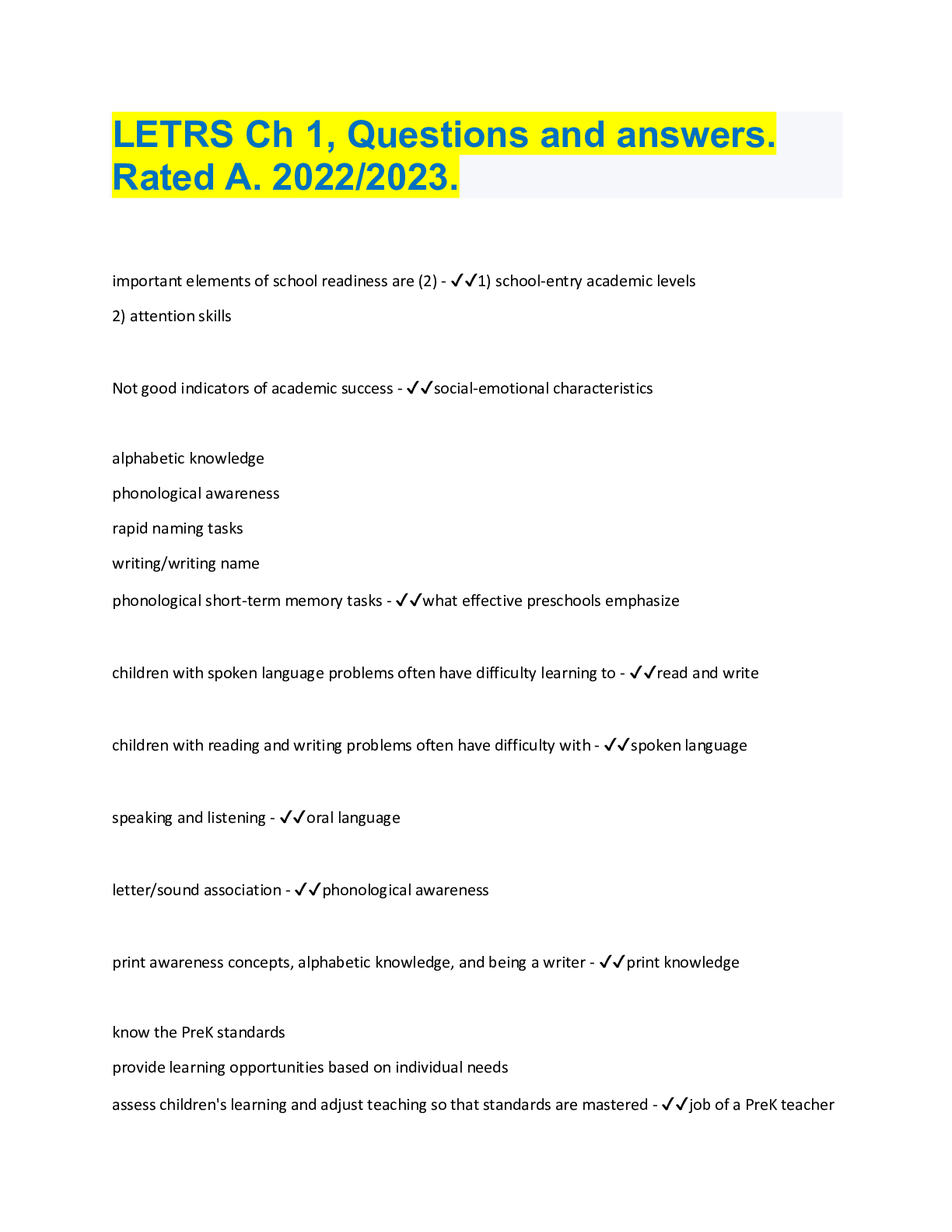
.png)

